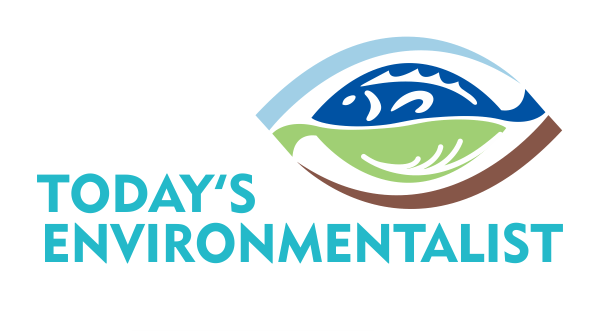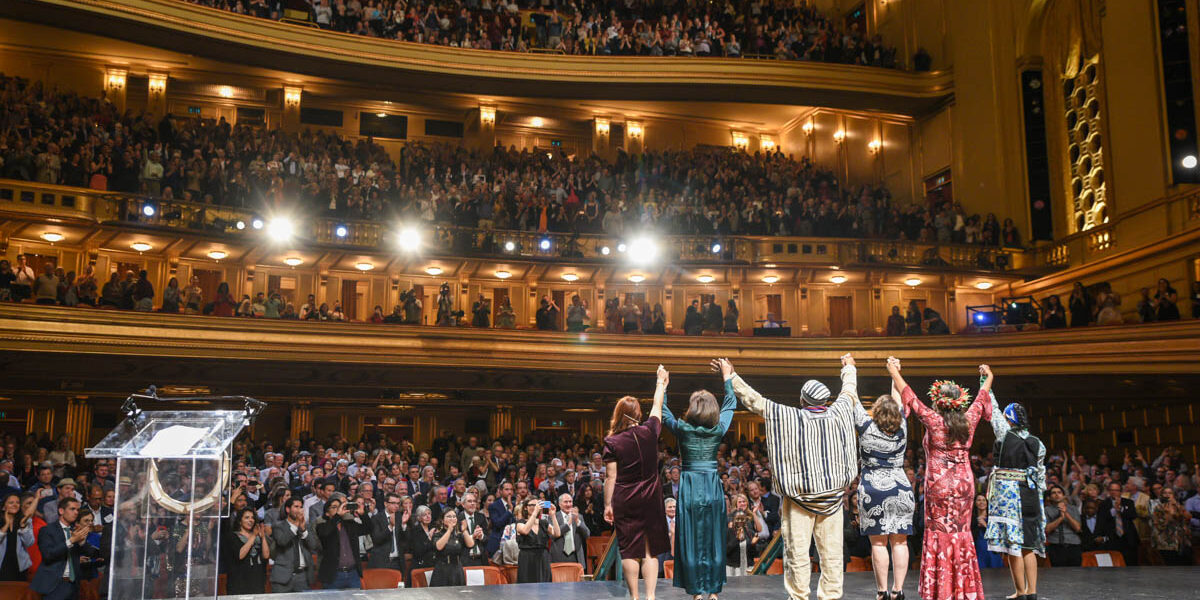The Goldman Environmental Foundation today announced six recipients of the 2020 Goldman Environmental Prize, the world’s foremost award for grassroots environmental activists.
Awarded annually to environmental heroes from each of the world’s six inhabited continental regions, the Goldman Environmental Prize honors the achievements and leadership of grassroots environmental activists from around the world, inspiring all of us to take action to protect our planet.
The Prize was founded in 1989 in San Francisco by philanthropists and civic leaders Rhoda and Richard Goldman. As Richard Goldman once noted, “We’d like to leave the world a little better than we found it.” In 31 years, the Prize has had an immeasurable impact on the planet. To date, the Prize has honored 200 winners (including 87 women) from 90 nations, and has shined a light on many of the critical issues facing the Earth.
“These six environmental champions reflect the powerful impact that one person can have on many,” said John Goldman, President of the Goldman Environmental Foundation. “In today’s world, we witness the effects of an imbalance with nature: a global pandemic, climate change, wildfires, environmental injustices affecting those most at risk, and constant threats to a sustainable existence. Even in the face of the unending onslaught and destruction upon our natural world, there are countless individuals and communities fighting every day to protect our planet. These are six of those environmental heroes, and they deserve the honor and recognition the Prize offers them—for taking a stand, risking their lives and livelihoods, and inspiring us with real, lasting environmental progress.”
This year’s winners are:
CHIBEZE EZEKIEL, Ghana
As a direct result of Chibeze Ezekiel’s four-year grassroots campaign, the Ghanaian Minister of Environment canceled the construction of a 700-megawatt (MW) coal power plant and adjoining shipping port to import coal. The coal power plant would have been Ghana’s first. Ezekiel’s activism stopped the coal industry from entering Ghana and steered the nation’s energy future away from coal.
KRISTAL AMBROSE, The Bahamas
Drawing on the power of youth activism, Kristal Ambrose convinced the government of The Bahamas to ban single-use plastic bags, plastic cutlery, straws, and Styrofoam containers and cups. Announced in April 2018, the nationwide ban went into effect in January 2020.
LEYDY PECH, Mexico
Leydy Pech, an indigenous Mayan beekeeper, led a coalition to successfully halt Monsanto’s planting of genetically modified soybeans in southern Mexico. The Mexican Supreme Court ruled that the government violated the Mayans’ constitutional rights and suspended the planting of genetically modified soybeans. Because of the persistence of Pech and her coalition, in September 2017, Mexico’s Food and Agricultural Service revoked Monsanto’s permit to grow genetically modified soybeans in seven states.
LUCIE PINSON, France
In 2017, Lucie Pinson’s activism successfully pressured France’s three largest banks to eliminate financing for new coal projects and coal companies. She then compelled French insurance companies to follow suit: between 2017 and 2019, mega insurers AXA and SCOR announced plans to end insurance coverage for coal projects.
NEMONTE NENQUIMO, Ecuador
Nemonte Nenquimo led an indigenous campaign and legal action that resulted in a court ruling protecting 500,000 acres of Amazonian rainforest and Waorani territory from oil extraction. Nenquimo’s leadership and the lawsuit set a legal precedent for indigenous rights in Ecuador, and other tribes are following in her footsteps to protect additional tracts of rainforest from oil extraction.
PAUL SEIN TWA, Myanmar
Seeking to preserve both the environment and Karen culture in Myanmar, in December 2018 Paul Sein Twa led his people in establishing a 1.35-million-acre peace park—a unique and collaborative community-based approach to conservation—in the Salween River basin. The Salween River basin is a major biodiversity zone and home to the indigenous Karen people, who have long sought self-determination and stewardship over their land. The new park represents a major victory for peace and conservation in Myanmar.
About the Goldman Environmental Prize
The Goldman Environmental Prize was established in 1989 by late San Francisco civic leaders and philanthropists Richard and Rhoda Goldman. Prize winners are selected by an international jury from confidential nominations submitted by a worldwide network of environmental organizations and individuals.








